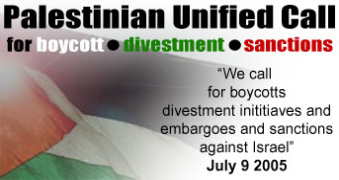
January 5, 2009
On "Huffington Post", at:
http://www.huffingtonpost.com/jillian-york/the-anatomy-of-a-protest_b_155114.html
It is often said that protests don't accomplish much of anything. Despite their effective use all over the world for thousands of years, in today's world, protests as a means of social change seem to have lost their power. It's not necessarily a reflection of apathy on the youth of today rather, it's a sign of the times; it's simply more efficient to forward an e-mail, join a Facebook group, make a donation online. But is it more effective?
Over the past 10 days, as Israeli airstrikes have hammered Gaza into the ground, furious activists and citizens from around the globe have succeeded in organizing rallies and protests in solidarity with Gaza and against the actions of Israel. From Cape Town to Caracas, Beirut to Budapest, ordinary citizens have come out in droves to speak out against the unspeakable.
In my own city of Boston, groups such as the International Socialist Organization, the Boston Coalition for Palestinian Rights, and the Somerville Divestment Project banded together to gain supporters for a rally on January 3. The turnout was surprisingly large - somewhere between three and four hundred individuals - and the march, which weaved down Boylston Street, through Chinatown, and back up to Copley Square, lasted for nearly two hours (read blogger Dennis Fox's account here).
The protest succeeded in drawing local attention to the cause, as protests are meant to do. Pedestrians stopped in their tracks, workers gave the peace sign through the windows of shops, and the police seemed almost relaxed as they watched the protestors shout slogans such as "Occupation is a crime, from Iraq to Palestine!" and "Hey hey, ho ho, aid to Israel's gotta go!" Television stations such as New England Cable News (NECN) later replayed scenes from the rally.
The protest was certainly effective, if only for the local attention it garnered. But would it have been so without the use of technology? In today's world, live and online activism go hand in hand. Without the use of Facebook or Twitter, I wouldn't have heard about the protests; without the Internet, I wouldn't have known much at all about the conflict. Mainstream media has proven itself to be utterly unreliable over the past 10 days, and in a spread-out city like Boston, it's difficult to discover what's what.
The protests of the past week have proven that the age of the protest for social change is not dead, but if we want to maximize effectiveness in 2009, it's necessary to learn the methods of the next generation. If we want to engage today's youth in activism, we must speak their language. This week has proven we can.
*************************************************



No comments:
Post a Comment